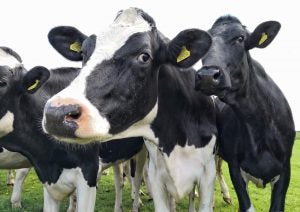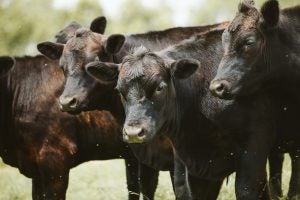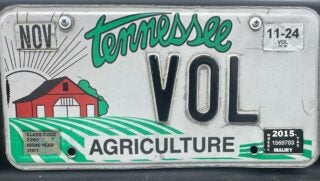Antibiotics. McDonald’s. These two things can do a lot to stir emotions, especially when you start digging into McDonald’s responsible antibiotic use policies. New updates to the policy are being labeled as “weak” by at least one major environmental advocacy organization, which also blames the fast-food giant for sourcing beef from “superbug-spreading suppliers.”
But before we pass judgment on McDonalds, let’s get a few things straight: Yes, McDonald’s really does use 100 percent real ground beef in their burgers. And yes, chicken nuggets are made from boneless, white-meat chicken breasts. And the sausage? Pork. Love it or not, the U.S. Food and Drug Administration has the right to hold products from being released and charge a fine for mislabeling.
» Related: ‘Responsible antibiotic use’ label for milk: A new market in dairy?
“Healthy animals provide McDonald’s with the ability to serve our customer’s safe food, and safe food is our number one global priority,” reads the policy.

As for the company’s responsible antibiotic use policy, McDonald’s has made the promise to reduce the use of medically necessary antibiotics defined by the World Health Organization. That doesn’t mean that their producers can’t use antibiotics if needed. In a business that sells 2.5 billion hamburgers each year, and 75 burgers every second, sourcing beef (or any other protein) from organic operations (which don’t use antibiotics but use significantly more land for the same output) simply isn’t feasible.
When it comes down to the nitty gritty of things, though, who do we really want deciding how we treat animals? A fast-food company? Activist groups? Or the professional producers out there raising the animals?
Animals are going to get sick, and treating them is the humane thing to do. But, what the company is doing is “refining antibiotic selection and administration, reducing non-therapeutic antibiotic use and, when possible, replacing antibiotics with long-term solutions to proactively prevent diseases and protect animal health and welfare …”
“Responsible antibiotic use is a critical component of our global commitment to improving the health and welfare of animals in our supply chain,” McDonald’s said.
What’s included in the policy update?
Refine, Reduce, Replace. The McDonald’s policy got a facelift on December 5, and what it might lack in teeth (how will they hold producers accountable?), it does include some pretty common sense framework. The principles of McDonald’s policy allow that, while encouraging producers to adapt tiered approaches to management under the oversight of veterinarians.
Here’s the gist on the principles that led to McDonald’s policy development:
- Producers, veterinary professionals, and the biopharmaceutical industry share a responsibility for proactively developing and implementing effective best management strategies to reduce, and where possible eliminate, the need for antibiotic use.
- Animal health and welfare is our primary objective, and we require those responsible for the care of animals entering our supply chain to treat sick animals.
- When antibiotics are prescribed by a qualified veterinarian, McDonald’s global position is one of responsible use, informed by VCPR history, expected treatment outcomes, resistance monitoring and susceptibility testing.
- When multiple effective treatment options exist, McDonald’s encourages adoption of a tiered approach to antibiotic selection with the least important to human medicine being the first choice, and Highest Priority Critically Important Antibiotics (HPCIAs) reserved for
last resort.
Furthermore, the policy states, “Antibiotic use should not be a substitute for good husbandry or adequately designed and implemented management systems. When appropriate, antibiotics should be considered an acceptable veterinary treatment complementing good management, good nutrition, vaccination, biosecurity, and on-farm hygiene.”

What can producers use to treat livestock under the policy?
Under the company’s policy, antibiotics used for the animals produced for McDonald’s have to follow World Organization for Animal Health standards. Producers for McDonald’s also cannot use antibiotics defined by WHO as medically important to humans. They also don’t support “habitual” use of antibiotics, and when antibiotics are used, the policy requires that producers use antibiotics in line with veterinary direction and national and local regulations.
Interestingly, ionophores such as Lasolocid and Monensin are allowed by the company. Categorized by WOAH as essential for animal health, they are recognized by McDonald’s as essential for controlling coccidiosis.
Moving forward, the company’s policy includes global pilot tests to collect market data on antibiotic usage at feedlots, farms, and dairies in the top 10 beef sourcing markets for McDonald’s. And yes, that does include the United States.


